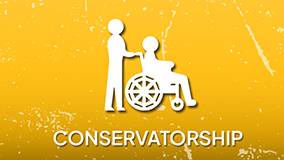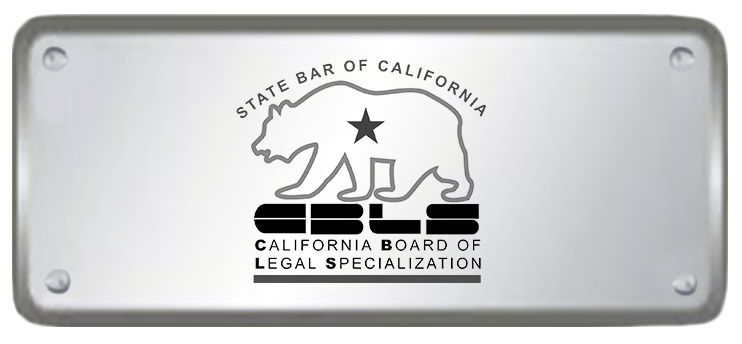GUARDIANSHIP IN CALIFORNIA
Guardianship in California is a legal process designed to protect and support minor children who are unable to make decisions for themselves. It provides a framework for ensuring their welfare, personal care, and financial management of that child is being safeguarded. A Guardianship proceeding involves a non-parent seeking the care and custody of a minor child. This typically occurs after one of the parents has passed away leaving a minor child needing to be raised.
Understanding the different types of guardianships, the appointment process, the duties and responsibilities of guardians, and the circumstances for termination is essential for individuals seeking guardianship or those involved in the guardianship process. If you require legal assistance or further information, the experienced attorneys at Antonyan Miranda can offer guidance through the guardianship process.
Guardianship proceedings are often the most emotionally difficult cases in the Probate Court. The need for urgency and safety are of the upmost concern to the Court. If there is no one with the legal authority to made a medical decision for a child, the Court will need to intervene on a much more consolidated timeline. Anyone can seek to be appointed the guardian of a minor child but family are given the first priority in the appointment and the court weighs what is in the child’s best interests for safety and stability. This might not always be with a biological parent and the grandparents may be a more stable placement for the child.
What are the Types of Guardianship in California?
In California, there are two main types of guardianship including:
1. GUARDIANSHIP OF THE PERSON:
Guardianship of the person involves taking responsibility for the personal care and welfare of the ward. The guardian is entrusted with making decisions related to the ward’s education, healthcare, residence, and overall well-being.
2. GUARDIANSHIP OF THE ESTATE:
Guardianship of the estate involves managing the financial affairs and assets of the ward. The guardian is responsible for protecting, preserving, and managing the ward’s property, paying bills, and making financial decisions on their behalf.
What is the Process of Appointment for Guardianship in California?
To establish guardianship in California, the following general steps must be followed:
PETITION:
The prospective guardian must file a petition with the court, providing information about themselves, the ward, and the reasons why guardianship is necessary.
INVESTIGATION:
The court will conduct an investigation to determine the suitability of the proposed guardian. This may involve background checks, interviews, and home visits.
NOTICE:
Notice of the guardianship proceedings must be given to the ward, their parents (if applicable), and other interested parties.
HEARING:
A court hearing will be scheduled to evaluate the petition and make a decision regarding the appointment of the guardian.
APPOINTMENT:
If the court determines that guardianship is in the best interests of the ward, an order appointing the guardian will be issued.
What are the Duties and Responsibilities of Guardians?
Once appointed, guardians in California have certain legal duties and responsibilities towards their wards, including:
CARE AND CUSTODY:
Providing for the ward’s physical, emotional, and medical needs, ensuring a safe and suitable living environment.
EDUCATION:
Making decisions regarding the ward’s education, including school enrollment, special education services, and extracurricular activities.
HEALTHCARE:
Authorizing and managing medical treatment, including consent for surgeries, medications, and therapy.
FINANCIAL MANAGEMENT:
If appointed as a guardian of the estate, responsibly managing the ward’s finances, assets, and debts.
REPORTING:
Regularly reporting to the court on the well-being and condition of the ward, as well as financial matters, as required by law.
How can Guardianship be Terminated in California?
Guardianship in California can be terminated in various ways, including:
REACHING MAJORITY:
If the ward reaches the age of majority (18 years old), guardianship of the person and estate is automatically terminated.
COURT ORDER:
The court may terminate guardianship if it determines that it is no longer necessary or in the best interests of the ward.
GUARDIAN’S RESIGNATION OR REMOVAL:
A guardian may voluntarily resign, or the court may remove a guardian for reasons such as neglect, abuse, or financial mismanagement.
BIOLOGICIAL PARENT’S RETURN:
A biological parent who does not have the custody of their child, may be able to demonstrate to the Court that there has been a chance of circumstances and that the current guardianship no longer is in the child’s best interests. This can be accomplished through effectively a reunification plan, or sobriety. If the court find’s that the child’s interests are to be returned to the parent, then a need for a guardianship may no longer exist.
How Can an Attorney Help Me with a California Guardianship?
The experienced and skilled attorneys at Antonyan Miranda can provide invaluable assistance and guidance throughout the guardianship process in California. Here are some ways in which our attorney can help:
LEGAL EXPERTISE:
Our attorneys have in-depth knowledge of California guardianship laws and can explain the legal requirements, rights, and responsibilities associated with guardianship. We can provide you with accurate and up-to-date information, ensuring that you understand the legal implications of seeking guardianship.
PETITION PREPERATION:
Filing a guardianship petition can be complex, requiring specific documentation and adherence to court procedures. Our attorneys can help prepare the necessary legal documents, ensuring that they are properly completed, accurate, and meet the court’s requirements. This can help avoid unnecessary delays or rejections of your petition.
LEGAL STRATEGY AND REPRESENTATION:
Our attorneys can help you develop a legal strategy tailored to your specific situation. We can analyze the facts of the case, evaluate the best interests of the ward, and advocate for your position in court. Having legal representation can significantly enhance your chances of a successful outcome.
COURT PROCEEDINGS:
Guardianship cases involve court hearings where evidence and arguments are presented. Our attorneys can represent you during these proceedings, presenting your case effectively and addressing any legal challenges or objections raised by other parties. We can also cross-examine witnesses and provide persuasive arguments in support of your guardianship petition.
MEDIATION AND NEGOTIATION:
In some cases, disputes or disagreements may arise during the guardianship process. Our attorneys can assist in mediating conflicts, negotiating settlements, or reaching agreements with other interested parties, such as family members or social service agencies. Our legal expertise and negotiation skills can help find resolutions that protect the best interests of the ward.
LEGAL COMPLIANCE AND REPORTING:
Guardians have ongoing legal obligations, including reporting requirements and compliance with court orders. Our attorneys can guide you in fulfilling these responsibilities, ensuring that you meet all legal requirements and deadlines. We can help you understand your duties as a guardian and provide advice on decision-making and financial management.
TERMINATION OF GUARDIANSHIP:
If circumstances change, and guardianship needs to be terminated or modified, our attorneys can guide you through the legal process. We can help you file the necessary petitions, present evidence, and argue for the termination or modification of guardianship in court.
The attorneys at Antonyan Miranda can provide crucial legal support and representation, ensuring that your rights are protected, and the best interests of the ward are upheld throughout the guardianship process in California. Call us at 619-255-7744 to speak with one of our Concierge attorneys or visit us at www.expertprobatelaw.com for more information.
FOLLOW US!
GUARDIANSHIP IN CALIFORNIA
Guardianship in California is a legal process designed to protect and support minor children who are unable to make decisions for themselves. It provides a framework for ensuring their welfare, personal care, and financial management of that child is being safeguarded. A Guardianship proceeding involves a non-parent seeking the care and custody of a minor child. This typically occurs after one of the parents has passed away leaving a minor child needing to be raised.
Understanding the different types of guardianships, the appointment process, the duties and responsibilities of guardians, and the circumstances for termination is essential for individuals seeking guardianship or those involved in the guardianship process. If you require legal assistance or further information, the experienced attorneys at Antonyan Miranda can offer guidance through the guardianship process.
Guardianship proceedings are often the most emotionally difficult cases in the Probate Court. The need for urgency and safety are of the upmost concern to the Court. If there is no one with the legal authority to made a medical decision for a child, the Court will need to intervene on a much more consolidated timeline. Anyone can seek to be appointed the guardian of a minor child but family are given the first priority in the appointment and the court weighs what is in the child’s best interests for safety and stability. This might not always be with a biological parent and the grandparents may be a more stable placement for the child.
What are the Types of Guardianship in California?
In California, there are two main types of guardianship including:
1. GUARDIANSHIP OF THE PERSON:
Guardianship of the person involves taking responsibility for the personal care and welfare of the ward. The guardian is entrusted with making decisions related to the ward’s education, healthcare, residence, and overall well-being.
2. GUARDIANSHIP OF THE ESTATE:
Guardianship of the estate involves managing the financial affairs and assets of the ward. The guardian is responsible for protecting, preserving, and managing the ward’s property, paying bills, and making financial decisions on their behalf.
What is the Process of Appointment for Guardianship in California?
To establish guardianship in California, the following general steps must be followed:
PETITION:
The prospective guardian must file a petition with the court, providing information about themselves, the ward, and the reasons why guardianship is necessary.
INVESTIGATION:
The court will conduct an investigation to determine the suitability of the proposed guardian. This may involve background checks, interviews, and home visits.
NOTICE:
Notice of the guardianship proceedings must be given to the ward, their parents (if applicable), and other interested parties.
HEARING:
A court hearing will be scheduled to evaluate the petition and make a decision regarding the appointment of the guardian.
APPOINTMENT:
If the court determines that guardianship is in the best interests of the ward, an order appointing the guardian will be issued.
What are the Duties and Responsibilities of Guardians?
Once appointed, guardians in California have certain legal duties and responsibilities towards their wards, including:
CARE AND CUSTODY:
Providing for the ward’s physical, emotional, and medical needs, ensuring a safe and suitable living environment.
EDUCATION:
Making decisions regarding the ward’s education, including school enrollment, special education services, and extracurricular activities.
HEALTHCARE:
Authorizing and managing medical treatment, including consent for surgeries, medications, and therapy.
FINANCIAL MANAGEMENT:
If appointed as a guardian of the estate, responsibly managing the ward’s finances, assets, and debts.
REPORTING:
Regularly reporting to the court on the well-being and condition of the ward, as well as financial matters, as required by law.
How can Guardianship be Terminated in California?
Guardianship in California can be terminated in various ways, including:
REACHING MAJORITY:
If the ward reaches the age of majority (18 years old), guardianship of the person and estate is automatically terminated.
COURT ORDER:
The court may terminate guardianship if it determines that it is no longer necessary or in the best interests of the ward.
GUARDIAN’S RESIGNATION OR REMOVAL:
A guardian may voluntarily resign, or the court may remove a guardian for reasons such as neglect, abuse, or financial mismanagement.
BIOLOGICAL PARENT’S RETURN:
A biological parent who does not have the custody of their child, may be able to demonstrate to the Court that there has been a chance of circumstances and that the current guardianship no longer is in the child’s best interests. This can be accomplished through effectively a reunification plan, or sobriety. If the court find’s that the child’s interests are to be returned to the parent, then a need for a guardianship may no longer exist.
How Can an Attorney Help Me with a California Guardianship?
The experienced and skilled attorneys at Antonyan Miranda can provide invaluable assistance and guidance throughout the guardianship process in California. Here are some ways in which our attorney can help:
LEGAL EXPERTISE:
Our attorneys have in-depth knowledge of California guardianship laws and can explain the legal requirements, rights, and responsibilities associated with guardianship. We can provide you with accurate and up-to-date information, ensuring that you understand the legal implications of seeking guardianship.
PETITION PREPARATION:
Filing a guardianship petition can be complex, requiring specific documentation and adherence to court procedures. Our attorneys can help prepare the necessary legal documents, ensuring that they are properly completed, accurate, and meet the court’s requirements. This can help avoid unnecessary delays or rejections of your petition.
LEGAL STRATEGY AND REPRESENTATION:
Our attorneys can help you develop a legal strategy tailored to your specific situation. We can analyze the facts of the case, evaluate the best interests of the ward, and advocate for your position in court. Having legal representation can significantly enhance your chances of a successful outcome.
COURT PROCEEDINGS:
Guardianship cases involve court hearings where evidence and arguments are presented. Our attorneys can represent you during these proceedings, presenting your case effectively and addressing any legal challenges or objections raised by other parties. We can also cross-examine witnesses and provide persuasive arguments in support of your guardianship petition.
MEDIATION AND NEGOTIATION:
In some cases, disputes or disagreements may arise during the guardianship process. Our attorneys can assist in mediating conflicts, negotiating settlements, or reaching agreements with other interested parties, such as family members or social service agencies. Our legal expertise and negotiation skills can help find resolutions that protect the best interests of the ward.
LEGAL COMPIANCE AND REPORTING:
Guardians have ongoing legal obligations, including reporting requirements and compliance with court orders. Our attorneys can guide you in fulfilling these responsibilities, ensuring that you meet all legal requirements and deadlines. We can help you understand your duties as a guardian and provide advice on decision-making and financial management.
TERMINATION OF GUARDIANSHIP:
If circumstances change, and guardianship needs to be terminated or modified, our attorneys can guide you through the legal process. We can help you file the necessary petitions, present evidence, and argue for the termination or modification of guardianship in court.
The attorneys at Antonyan Miranda can provide crucial legal support and representation, ensuring that your rights are protected, and the best interests of the ward are upheld throughout the guardianship process in California. Call us at 619-255-7744 to speak with one of our Concierge attorneys or visit us at www.expertprobatelaw.com for more information.

























